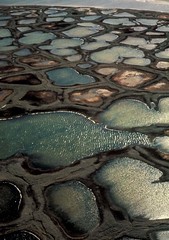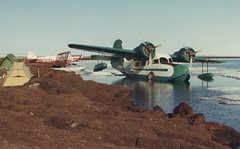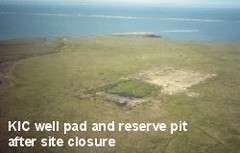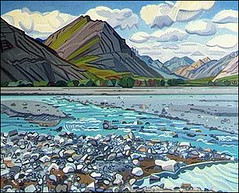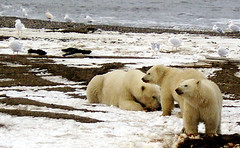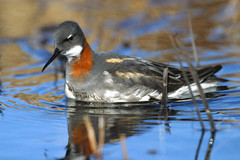Congress OKs budget -- with ANWR funding
Rodger Schlickeisen, president of Defenders of Wildlife, had this to say:
“In the end, the most telling thing is that the Republican leadership, with their backroom budget scam, didn’t have the guts to come out and say they were opening the Arctic National Wildlife Refuge to oil. They know that broad majorities of the American public disagree with them and their oil industry allies on plans to open the biological heart of the Arctic Refuge to oil drills.
“Make no mistake about it; a vote for this budget is a vote to open the Arctic Refuge to oil drilling... This budget includes open-ended instructions that allow the Republican leadership to fast-track Arctic Refuge drilling, avoiding the normal legislative checks and balances. ”
The Senate voted 52-47 to approve the budget. The House voted 214-211. These surprisingly slim margins suggest there was a lot more controversy in the $2.6 trilling federal spending plan. One of the biggest bones of contention was Medicaid spending.
The close votes also mean drilling supporters will have to proceed cautiously to keep ANWR drilling alive. The budget bill is not the final word on drilling. Congress must still approve specific legislation to legalize drilling in the refuge, which would then become part of a budget reconciliation bill to be approved later.
That's why Sen. Lisa Murkowski, R-Alaska, a standard-bearer on ANWR drilling, is urging her Republican colleagues not to change Congressional rules to prevent Democrats from filibustering the president's judicial nominees. The so-called "nuclear option" to get conservative judges appointed would prompt Democrats to shut down Congress through other procedural moves, which would kill ANWR drilling.
"This is one of the reasons I have urged caution on the judicial nominees," Murkowski told the Fairbanks Daily News-Miner. "Any time you have an opportunity for a vote, it's another potential bump in the road."
[Technorati tags: ANWR, politics]

